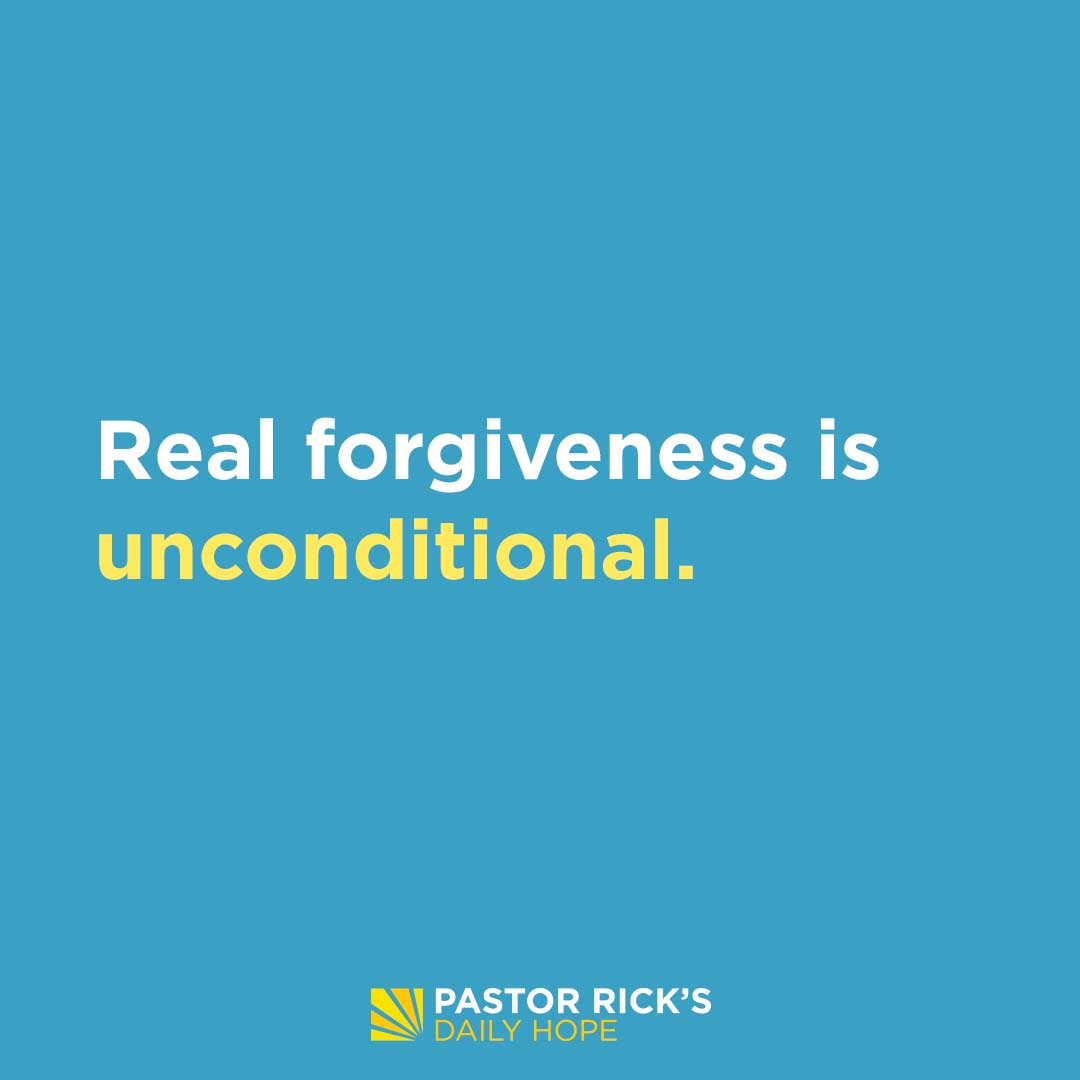What Forgiveness Really Is
by Rick Warren — May 21, 2022
From God’s Prescription for a Healthy Life

“Father, forgive them, for they do not know what they are doing."
Luke 23:34 (NIV)
Forgiveness may be the most misused, misapplied, and misunderstood quality in our culture. You may think you know what forgiveness is all about, but, if you’re like most people, you really don’t.
Here’s a quiz to help you gauge your understanding of forgiveness; decide if each statement is true or false.
1. A person should not be forgiven until they ask for it.
2. Forgiving includes minimizing the offense and the pain caused.
3. Forgiveness includes restoring trust and reuniting a relationship.
4. You haven’t really forgiven until you’ve forgotten the offense.
5. When you see somebody hurt, it is your duty to forgive the offender.
When you read the Bible and learn what God has to say about forgiveness, you discover that all five of those statements are false.
Since most people don’t understand forgiveness, we’re going to spend the next few days looking at what forgiveness really is.
First, real forgiveness is unconditional. There are no requirements attached to it. You don’t earn it. You don’t deserve it. You don’t bargain for it. Forgiveness is not based on a promise to never do it again. You offer forgiveness to somebody whether they ask for it or not.
When Jesus stretched out his hands on the cross and said, “Father, forgive them, for they do not know what they are doing,” nobody had asked for it (Luke 23:34 NIV). Nobody had said, “Jesus, please forgive me for what we’re doing to you.” He just offered it. He took the initiative.
Second, forgiveness isn’t minimizing the seriousness of the offense. When somebody asks for your forgiveness and you say, “It’s no big deal. It really didn’t hurt,” that actually cheapens forgiveness. If the offense wasn’t a big deal, then you don’t need to ask for or offer forgiveness.
Forgiveness is for the big stuff. You don’t use it for slights that are just minor issues; life’s small slights just require patience and acceptance. It’s life’s big wrongs that require forgiveness—and those wrongs shouldn’t be minimized. If an offense was a big deal, admit that it was. And then forgive, or ask for forgiveness.
Understanding forgiveness is the first step to living it out. So the next time you’ve offended someone, or have been offended yourself, remember these two things: First, forgiveness is unconditional. And, second, forgiveness never minimizes the wrong.


Connect with Pastor Rick Warren